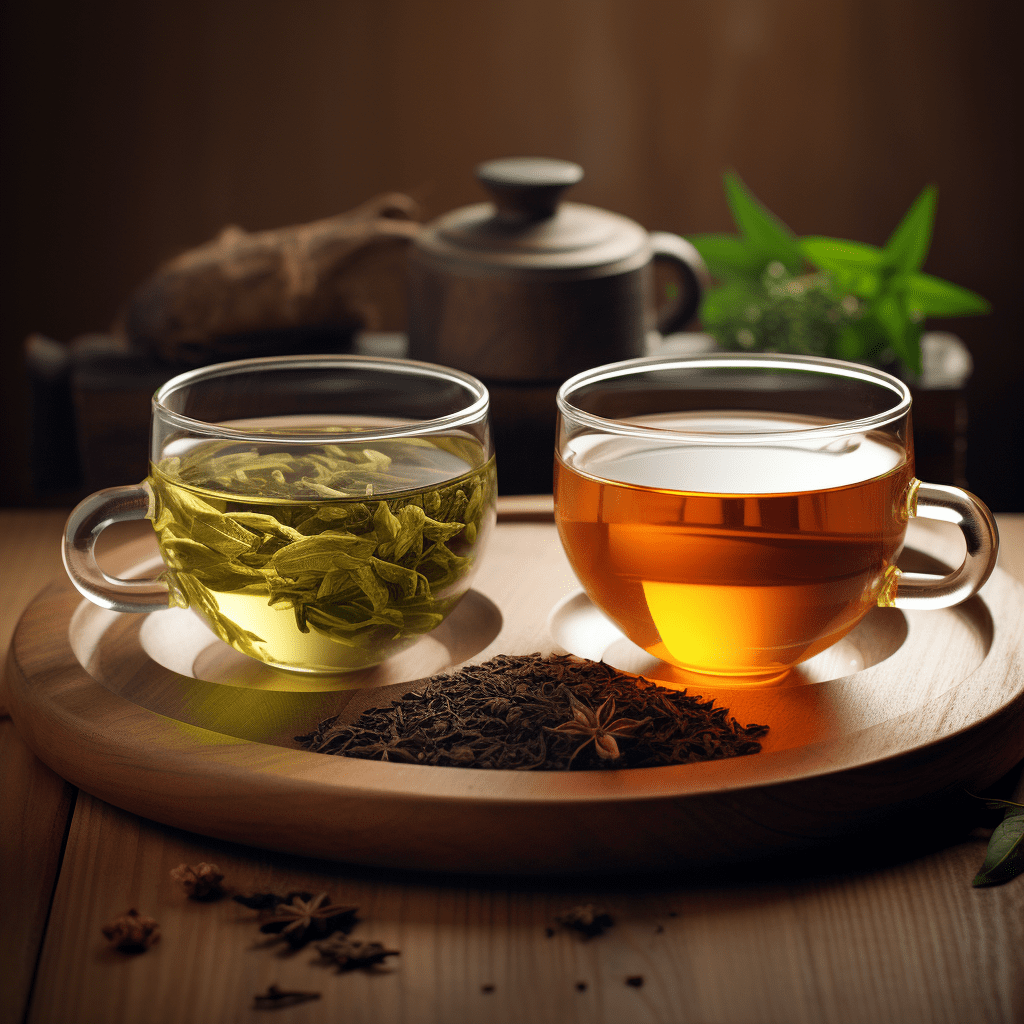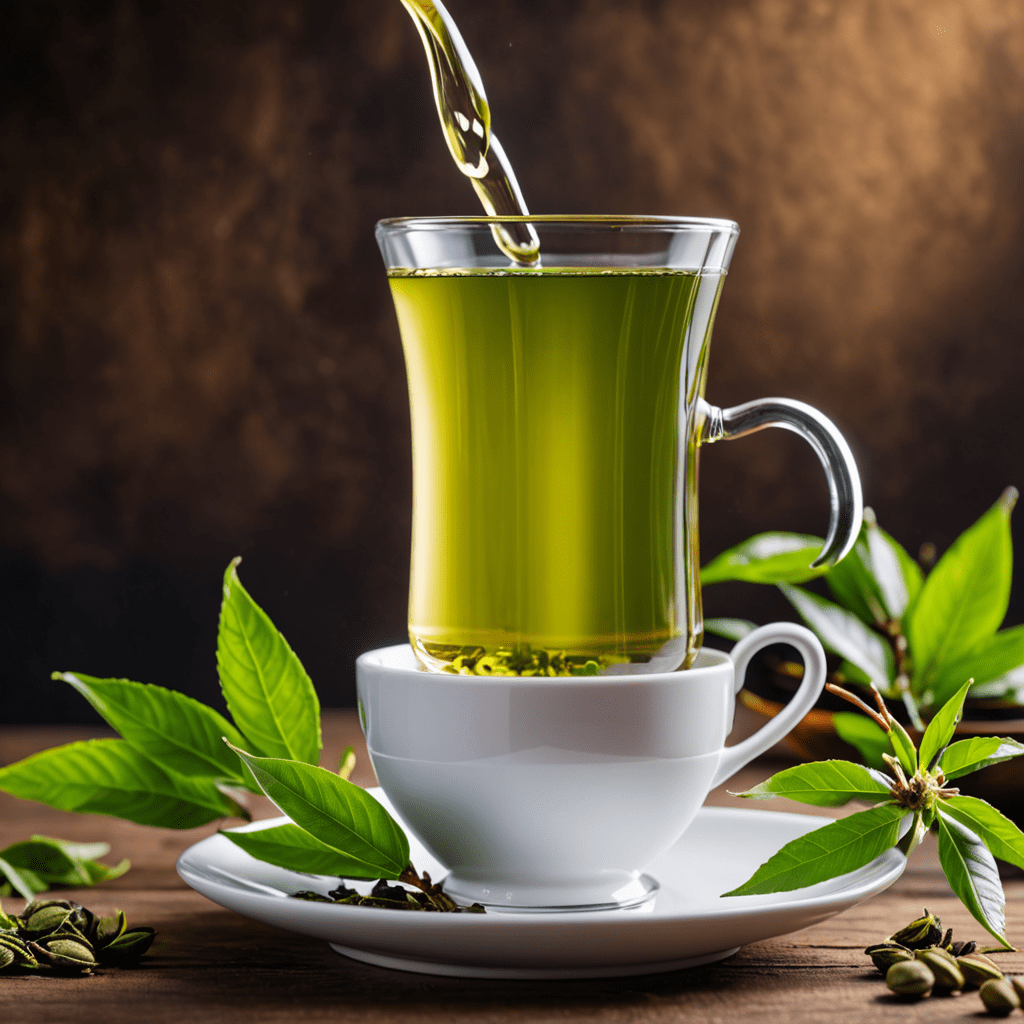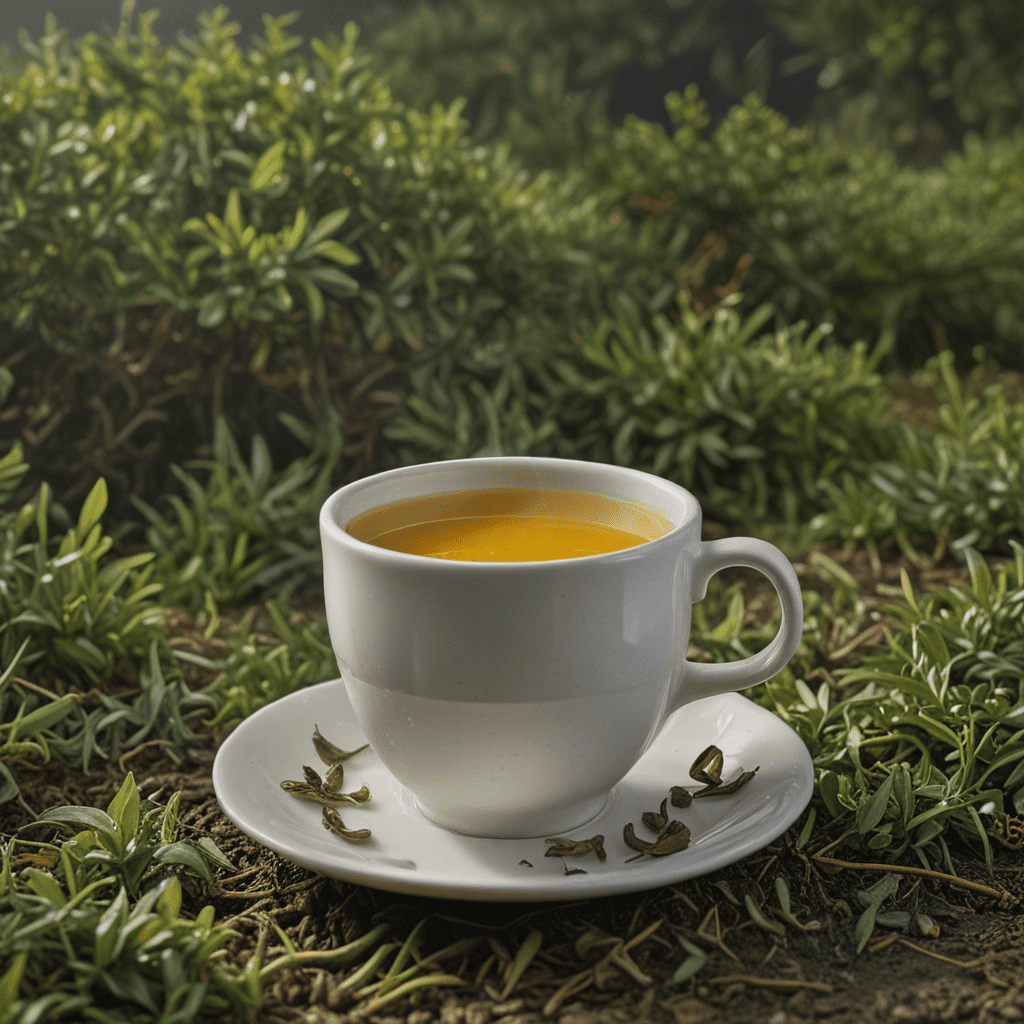The Difference Between Black Tea and Green Tea: Exploring the World of Tea
Tea has been consumed for centuries and is one of the most popular beverages worldwide. Among the various types of tea, black tea and green tea stand out as two distinct favorites. While both are derived from the same plant, Camellia sinensis, they undergo different processing methods, which result in their unique characteristics and flavors. In this article, we will delve into the key differences between black tea and green tea, from their production to their health benefits.
1. Processing Techniques and Oxidation Levels
The primary distinction between black tea and green tea lies in their respective processing techniques. Green tea undergoes minimal oxidation, while black tea undergoes full oxidation.
Green Tea:
Green tea is made from freshly harvested leaves that are immediately exposed to heat to prevent oxidation. The leaves are either steamed or pan-fried, preserving their natural green color and delicate flavors. This minimal processing allows the tea to retain its high concentration of antioxidants, polyphenols, and vitamins.
Black Tea:
In contrast, black tea is made from withered leaves that are fully oxidized before they are dried. During the oxidation process, the leaves turn dark and develop stronger flavors. This oxidation transforms the tea’s natural compounds, leading to a distinct taste and aroma. Black tea contains lower levels of antioxidants compared to green tea but is higher in caffeine content.
2. Flavor Profiles
The difference in processing techniques directly influences the flavor profiles of black tea and green tea.
Green Tea:
Green tea is well-known for its fresh, grassy, and slightly bitter taste. It often has a light and vegetal aroma with subtle floral or nutty undertones. The flavor can vary depending on the specific type of green tea, such as sencha, matcha, or jasmine tea. Generally, green tea has a milder taste compared to black tea.
Black Tea:
Black tea offers a robust and bold flavor profile with a rich, malty, and sometimes smoky taste. It provides a fuller body and is often described as having hints of caramel, chocolate, or fruitiness. The strength and depth of flavor differ across various black tea varieties like Assam, Darjeeling, and Earl Grey.
3. Caffeine Content
The level of caffeine is another aspect that sets black tea and green tea apart.
Green Tea:
Green tea generally contains a lower level of caffeine compared to black tea. On average, an 8-ounce cup of green tea contains around 20-45 milligrams of caffeine. However, the precise amount may vary depending on factors such as the tea type, brewing time, and water temperature.
Black Tea:
Black tea is known for its higher caffeine content. An 8-ounce cup of black tea can contain anywhere from 40-70 milligrams of caffeine. This makes black tea an ideal choice for those seeking an energy boost or a morning pick-me-up.
4. Health Benefits
Both black tea and green tea offer numerous health benefits, although their compositions differ due to variations in processing and oxidation levels.
Green Tea:
Green tea is revered for its abundant antioxidants, particularly catechins, which play a crucial role in promoting overall well-being. These antioxidants have been linked to various health benefits, including improved heart health, enhanced brain function, and lowered risk of certain cancers. Green tea is also revered for its potential to boost metabolism and aid weight loss.
Black Tea:
Although black tea has lower antioxidant levels compared to green tea, it still contains beneficial compounds such as theaflavins and thearubigins. These compounds contribute to black tea’s potential health benefits, such as improved gut health, reduced blood pressure, and enhanced focus and concentration. Additionally, black tea is known for its high content of flavonoids, which are associated with a reduced risk of heart disease.
5. Brewing Methods
The brewing methods for black tea and green tea are slightly different due to their distinct characteristics.
Green Tea:
To brew a perfect cup of green tea, it is recommended to use water that has been heated to around 170-180°F (75-85°C). Steep the tea leaves for approximately 2-3 minutes to extract the flavors while avoiding bitterness. Adjust the brewing time to your preference for a milder or stronger brew.
Black Tea:
Black tea requires hotter water to unlock its full flavor potential. Boil water to around 200-212°F (95-100°C) and steep the tea leaves for 3-5 minutes. Adjust the brewing time or use a shorter duration for a lighter cup or a longer duration for a stronger and more robust infusion.
FAQ: Frequently Asked Questions
Q: Which type of tea has more caffeine: black tea or green tea?
A: Black tea generally contains more caffeine than green tea. However, the exact amount depends on various factors such as the specific tea variety, brewing method, and steeping time.
Q: Can I mix black tea and green tea together?
A: Absolutely! Many tea enthusiasts enjoy creating their own unique blends by combining black and green teas. Experiment with different ratios and flavors to find your preferred combination.
Q: Is it healthier to drink black tea or green tea?
A: Both black tea and green tea offer health benefits, albeit with slight differences. Green tea is often touted for its high antioxidant levels, while black tea contains beneficial compounds and offers potential cardiovascular benefits. Ultimately, the healthier choice depends on individual preferences and health goals.
In conclusion, though black tea and green tea originate from the same plant, their distinct processing techniques lead to varying flavors, caffeine contents, and health benefits. Whether you prefer the boldness of black tea or the delicate notes of green tea, both offer a delightful and refreshing experience. Embrace the diversity of tea by exploring different varieties and discovering your personal favorite. Cheers to a world steeped in flavors and traditions!


